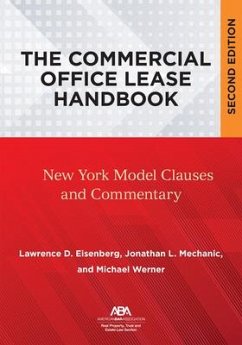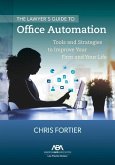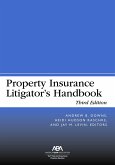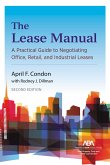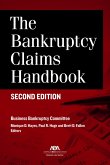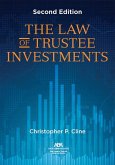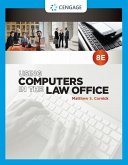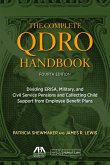The Commercial Office Lease Handbook: Second Edition provides a fuller understanding of each critical provision of an office lease: why it is included, why it is important to both the landlord and the tenant, and why and how to best negotiate it. The authors focus on the provisions of the standard printed office lease most commonly used in New York and compare that form with a more complex commercial office lease having the same structure. They offer practical insights about the perspectives of both landlord and tenant in the negotiating process, noting which clauses are essential and which, if not amended, may provide traps for the unwary. Although it examines two New York model forms, the book's practical comparative format, expert commentary, and negotiating tips are valuable tools for real estate practitioners in any jurisdiction. The book combines, side-by-side and clause-by-clause, organized commentary on the Real Estate Board of New York, Inc.'s ubiquitous "Standard Form of Office Lease," along with a common but sophisticated model form of manuscript lease that might be prepared for any office building landlord. Because the section headings in both forms are almost identical, this format assists the real estate lawyer by providing easy-to-find, helpful examples and practice commentary for any lease form, in any state, provision by provision. The book is organized into 54 chapters, with each corresponding to a single functional article of two different model lease forms covered in the text. Each chapter contains sections detailing the lease form: * General Purpose: explains the need met by the article and how it functions * Sample Clause: sets forth the applicable article of the sophisticated form office lease * Landlord Concerns: explains why the article is important to the landlord and distinguishes between the portions that are most vital to the landlord's concerns and those that are desirable but ultimately optional * Tenant Concerns: explains the pitfalls of the article from the tenant's perspective, shows which portions the tenant must negotiate and how to negotiate them, and those portions that should be acceptable to the tenant, if not desirable * Standard Real Estate Board of New York Clause: sets forth the parallel article from the REBNY "Standard Form" * Comments on the Standard Real Estate Board of New York Clause: explains how the model article differs from the REBNY "Standard Form" * Litigation Issues: discusses case law applicable to the article, including citations This is an invaluable resource for understanding and negotiating all likely office space lease provisions in addition to several less common clauses. The book's unique treatment explaining each clause with contrasting party commentary makes this a valuable tool for negotiating the best possible lease for a client, whether for a landlord or a tenant.
Hinweis: Dieser Artikel kann nur an eine deutsche Lieferadresse ausgeliefert werden.
Hinweis: Dieser Artikel kann nur an eine deutsche Lieferadresse ausgeliefert werden.

